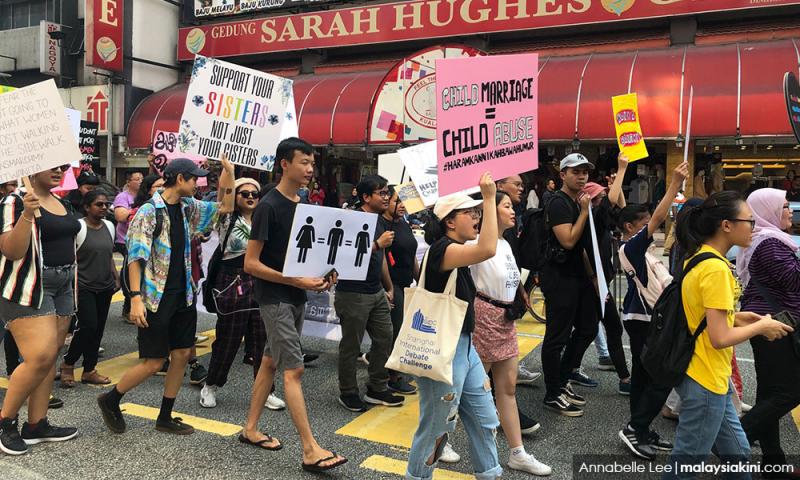Stop harassment and intimidation of Women’s March organisers
LETTER | The International Commission of Jurists (ICJ) calls on the government of Malaysia to take immediate steps to protect the rights of all persons in the country to freedom of expression and assembly.
We make this call after seven organisers of the International Women’ Day March were summoned for questioning by the police on March 14, 2019.
It is very concerning that the Malaysian authorities continue to rely on repressive legislation to control and undermine freedom of expression and freedom of assembly in the country.
The Women’s March took place in Kuala Lumpur, on March 9, 2019. The demands of the participating groups included an ‘end of all violence based on gender and sexual orientation’, the ban of all child marriages, and the setting of RM1,800 as the minimum wage.
A statement by the Dang Wangi District deputy police chief identified the organisers as individuals who had spoken at an ‘LGBT’ rally.
They were reportedly taken in for questioning on March 18 for potential violations of Section 4(1) of the Sedition Act and Section 9(5) of the Peaceful Assembly Act. They remain at risk of being charged with these offences.
The ICJ considers the Sedition Act 1948 and the Peaceful Assembly Act 2012 to be incompatible with international standards. The ICJ has previously called on the government of Malaysia to abolish both laws, which have historically been used to silence the voices of those challenging governmental policies.
Laws that are inconsistent with human rights principles
The laws place restrictions on the exercise of freedom of expression that are overly broad, unnecessary and disproportionate, and inconsistent with the rule of law and human rights principles.
The Pakatan Harapan government committed itself to abolish the Sedition Act 1948 and the Peaceful Assembly Act 2012, but has not done so to date.
The vague definition of ‘seditious tendencies’ in the Sedition Act has been used as a tool for silencing government critics and human rights defenders by the previous administrations. It is disappointing that the Malaysian authorities have ended the moratorium on the use of the Sedition Act 1948, and continue to use it, instead of moving towards its abolition.
According to international standards, any limit on the right to peaceful assembly should not require prior authorisation by the authorities. Notification requirements must not be unduly bureaucratic and be used only for the purpose of allowing the authorities to facilitate the exercise of the right to peaceful assembly, and to protect public safety.
In a statement issued on March 14, the organisers claimed to have been in regular communication with the police and to have been in compliance with the relevant notice provisions of the Peaceful Assembly Act.
The ICJ calls on the Malaysian authorities to end any investigation targeting the organisers of the Women’s March pursuant to the Peaceful Assembly Act and the Sedition Act. We also call on the Malaysian government to abolish the Peaceful Assembly Act and the Sedition Act.
EMERLYNNE GIL is Senior International Legal Advisor of the International Commission of Jurists. Email: emerlynne.gil(a)icj.org
The views expressed here are those of the author/contributor and do not necessarily represent the views of Malaysiakini.
RM12.50 / month
- Unlimited access to award-winning journalism
- Comment and share your opinions on all our articles
- Gift interesting stories to your friends
- Tax deductable
